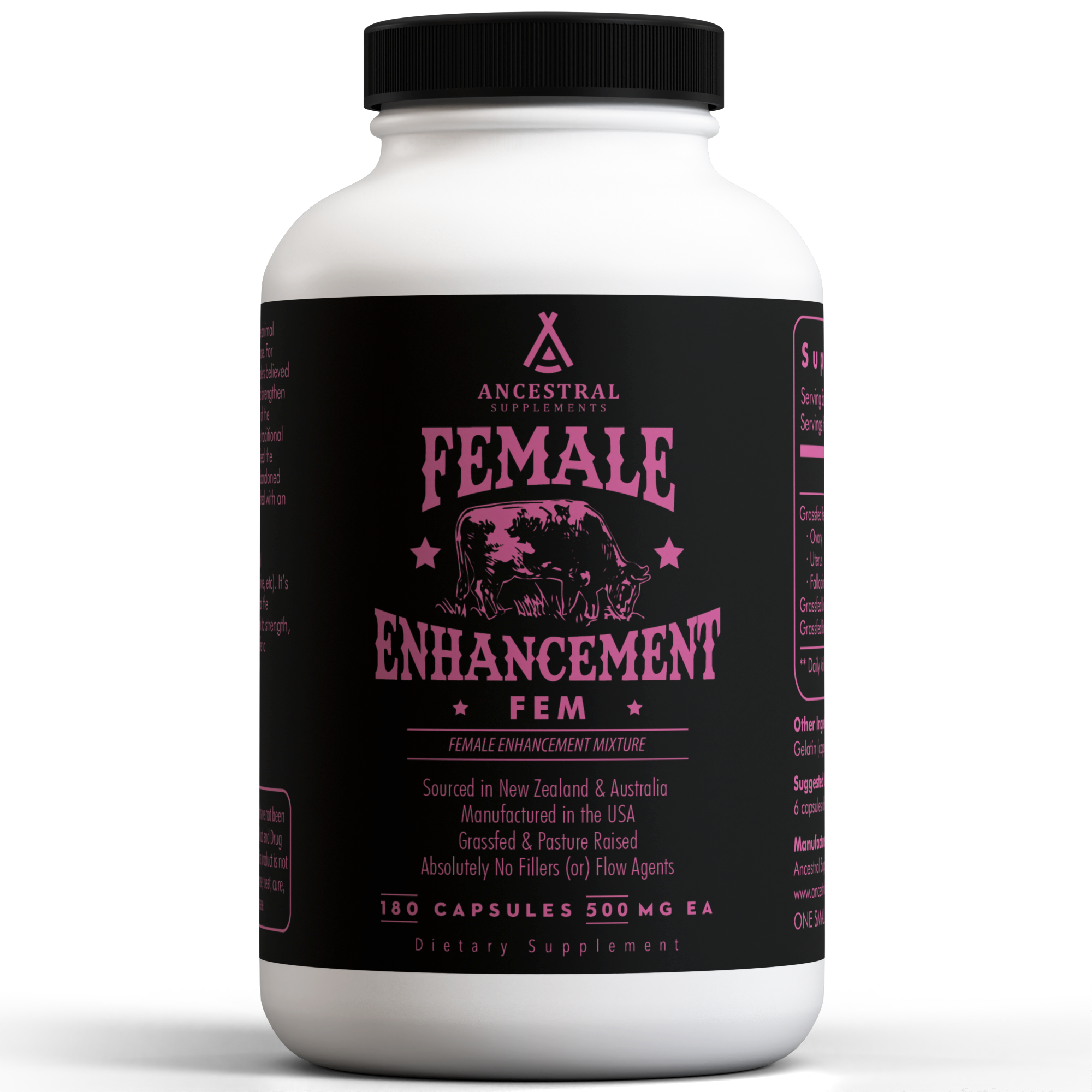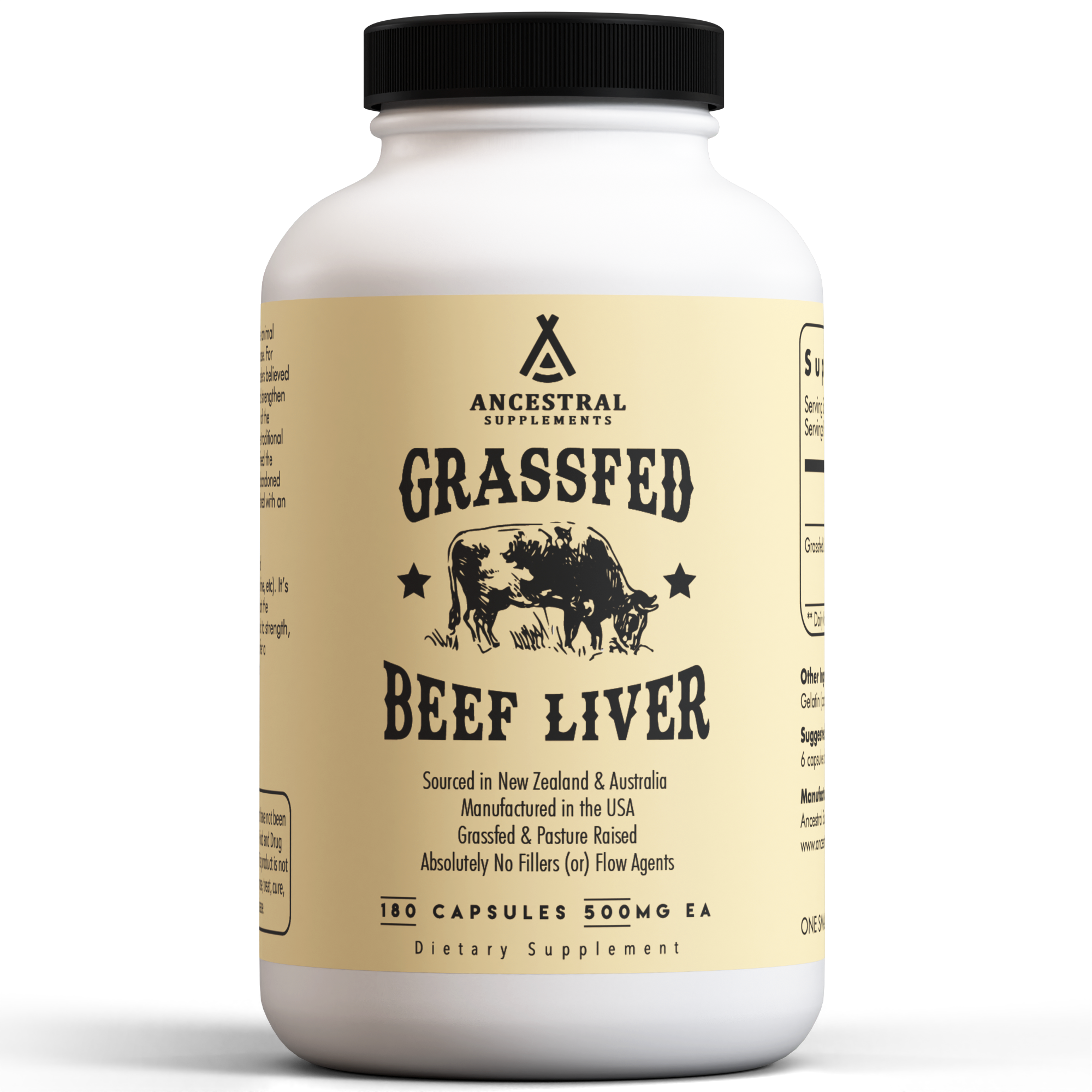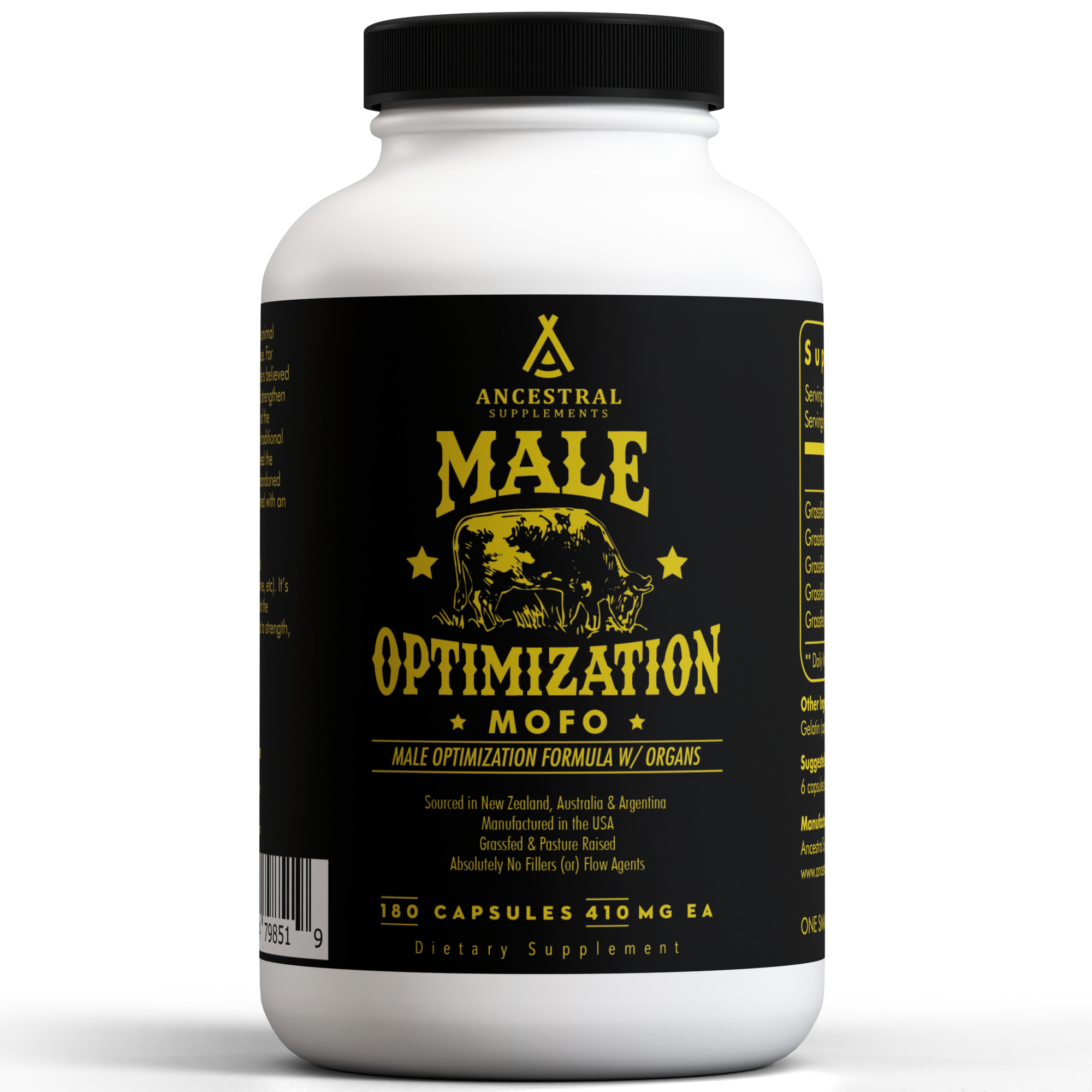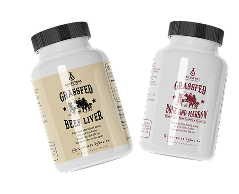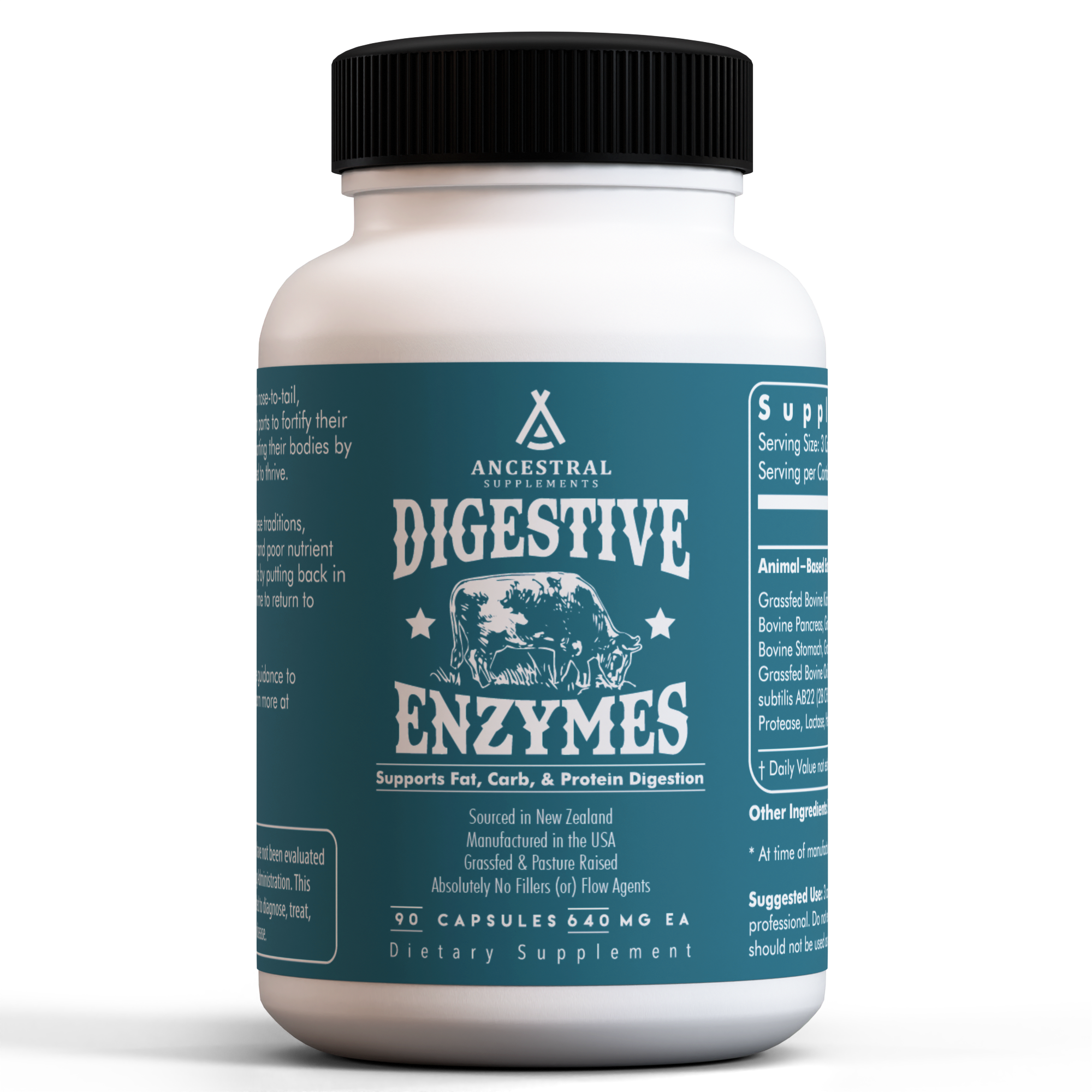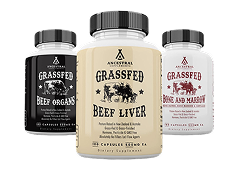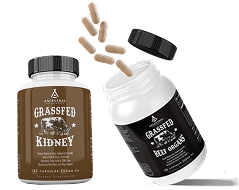Myth Busted: Feeling Bloated After Eating Isn’t “Normal”

You finish dinner and immediately feel the bloat. Tight waistbands, gassy discomfort, maybe even heartburn or constipation. You’ve been told it’s normal. It’s just what happens when you eat a meal, right?
Not quite. Bloating after eating and that full, puffy feeling—especially when it happens often—isn’t "just what happens after you eat," and isn't something you should just accept and ignore. It’s actually your body’s way of signaling that something’s off in your digestive process, and it can even occur after eating mostly "healthy meals," such as those high in fiber.
Nearly 1 in 5 adults report experiencing bloating regularly. If you're one of them, this article is for you. We'll break down what’s really going on and how you can fix it naturally, including with the best supplements for bloating.
Debunking the Myth That Consistently Feeling Bloated After Eating Is the Norm
Many people assume bloating is just a normal part of digestion, but recurring discomfort can indicate underlying issues, such as imbalances in gut bacteria, food sensitivities, slow digestion, or even stress affecting your digestive system.
Bloating is basically your body’s way of saying it needs a little extra support.
And by paying attention to the signs and making small, targeted adjustments, including changing meal timing, balancing fiber and protein, or supporting gut health with probiotics, you can often reduce bloating naturally and feel lighter, more comfortable, and energized after meals.
The Real Culprits Behind Post-Meal Bloating
Bloating isn’t caused by eating per se. It’s caused by impaired digestion.
When your digestive system isn’t functioning optimally, your body struggles to break down food well. That leaves behind undigested particles, which ferment and create gas, along with pressure, discomfort, and bloating.
Why does this happen? The main reasons include:
1. Digestive Enzyme Insufficiency
Without enough digestive enzymes—especially proteases, lipases, and amylases—your body can’t properly break down proteins, fats, and carbs. This is sometimes called enzyme digestive enzyme insufficiency. When you lack these necessary enzymes:
-
Protein breakdown stalls, which can lead to fermentation in the gut
-
Gas then builds up, triggering bloating and distension
-
Symptoms can compound over time as inflammation and microbiome imbalance (called dysbiosis) increase
Want a simple way to help stop this process? Ancestral Supplements’ Grass Fed Beef Pancreas provides naturally occurring digestive enzymes and cofactors that can help support digestion. Based on whole food (dessicated pancreas), these capsules contain proteins, peptides, and enzymes that encourage nutrient absorption and improve digestive function.
2. Gas-Producing Fermentation
Bloating often comes from bacterial fermentation of undigested carbohydrates. Here's how it happens:
-
Certain gut bacteria feast on leftover food: This is especially true of FODMAPs (Fermentable Oligo-, Di-, Mono-saccharides And Polyols), which are short-chain carbs that are poorly absorbed in the small intestine. Examples of FODMAP foods include onions, garlic, beans, wheat, apples, and certain dairy products.
-
Imbalances in the gut microbiome lead to excessive gas production: When you experience dysbiosis and your microbiome is out of balance—too many gas-producing bacteria and not enough supportive strains—this fermentation process produces excessive gas in the form of hydrogen, methane, and carbon dioxide. This then stretches your intestinal wall, leaving you feeling uncomfortable.
-
Distension triggers discomfort: The trapped gas stretches the intestinal walls, activating stretch receptors, which can lead to that full, puffy, or even crampy sensation after meals
3. Food Intolerances and Sensitivities
You might not feel intolerant, but your gut knows if you are or not. Reactions to different foods vary from person to person; even healthy foods, such as some veggies and legumes, can be problematic for many people.
Common sensitivities and intolerances include foods like:
-
Those with lactose and gluten, which include dairy, wheat, barley, rye, and all foods made with wheat flour.
-
FODMAP-rich foods (like onions, garlic, and beans), which, as mentioned above, feed gas-producing bacteria.
4. Poor Eating Habits
The speed at which you eat, plus how often you eat and even your mental state while eating, all affect how well you digest meals.
-
Eating too fast = swallowing excess air.
-
Not chewing thoroughly = heavier digestive load, which is harder to break down.
-
Large portions = delayed emptying and more fermentation and bloating.
-
Carbonated drinks = additional gas in the digestive tract.
5. Structural Digestive Issues
Aside from the factors described above, other digestive issues that can cause bloating include:
-
Low stomach acid: This can lead to incomplete protein digestion and microbial overgrowth.
-
Sluggish bile flow: Can cause fat malabsorption and bloating.
-
Weakened intestinal lining: This is the cause of leaky gut syndrome, which kicks off inflammatory responses.
The Science Behind Bloat-Free Digestion
When you know what healthy digestion looks and feels like, it can help you recognize when something is off.
When your gut functions properly, food moves efficiently through your digestive tract, nutrients are absorbed, and gas and inflammation are kept in check. In other words, you should be able to eat and move on with your day without feeling uncomfortable or self-conscious.
What Should Digestion Look Like?
In a healthy gut:
-
Stomach acid breaks down proteins quickly and efficiently.
-
Enzymes handle the breakdown of carbs and fats with ease, preventing fermentation.
-
Good bacteria stay balanced, helping reduce gas and inflammation.
On the other hand, when digestion is compromised, undigested food lingers, bacteria multiply, and inflammation worsens. That’s when the bloating cascade begins.
How to Reduce Bloating After Eating
You don’t need to accept bloating as your norm. Instead, you can support your digestive system in several key ways, such as by changing what you eat and considering supplementing with digestive enzymes.
Immediate Anti-Bloating Strategies
Mindful Eating Habits:
-
Chew thoroughly: Digestion starts in the mouth, so make sure you chew slowly and well before you swallow, which can boost saliva production to help with digestion and even help you eat less. Taking smaller bites can also help with this.
-
Slow down when eating: Give your body time to release enzymes and acid. Try taking about 20 minutes to eat a meal.
-
Stop when you're 80% full: Don’t overload your system by eating more than you need. When your body starts telling you it's had enough, put the fork down and let satiety catch up.
-
Avoid carbonated drinks (especially with meals): This can make discomfort feel even worse.
Intentional Food Choices:
-
Identify and avoid personal trigger foods, such as beans and other plant proteins (which studies suggest can often cause gas), gluten, milk and dairy products, sugar, and so on.
-
Favor cooked vegetables over raw ones, since cooked plants tend to be easier on digestion.
-
Include digestion-supportive herbs like ginger, fennel, or peppermint, which can often help improve overall digestive health and gut function. For example, peppermint oil is useful for managing IBS, while ginger can help with nausea, cramping, and stomach pains.
Targeted Support for Better Breakdown
Digestive Enzymes:
Supplementing with natural enzymes can help break down food before it becomes gas and inflammation.
Beef pancreas, for example, naturally contains proteases, lipases, and amylases, meaning it's a complete spectrum source of digestive enzymes. Supplementing with beef pancreas can support your own enzyme production while relieving the load on your pancreas and stomach.
Ancestral Supplements’ Grass Fed Beef Pancreas is a great option for assisting in all phases of digestion, particularly for protein-heavy meals common in carnivore, Paleo, or ketogenic diets. If you don't necessarily want to cook and eat pancreas regularly, these freeze-dried (dessicated) capsules are a super convenient and concentrated way to obtain supportive enzymes.
Another option for digestive enzyme support is Ancestral Supplements Digestive Enzymes, which mimic your body’s natural processes, helping you efficiently break down proteins, fats, and carbs—so you can enjoy your meals without worry.
Both products help your gut work smarter, not harder, by:
-
Breaking down complex foods for easier digestion
-
Relieving bloating, gas, indigestion, and constipation
-
Boosting nutrient absorption for better vitality
-
Supporting overall digestive comfort and balance
Gut Environment Optimization:
-
Nourish your gut lining: Include bone broth, collagen-rich foods, or gelatin in your meals. These provide amino acids like glycine and proline, which help maintain a strong, resilient gut lining and reduce inflammation. One study even found that 20 grams of collagen daily can help relieve bloating when used consistently.
-
Rebalance your microbiome: Consider a high-quality soil-based probiotic or fermented foods like sauerkraut, kimchi, and kefir to restore healthy gut bacteria. A balanced microbiome helps prevent excess gas, supports digestion, and boosts immune function.
Some studies have found that pairing a low-FODMAP diet with a multistrain probiotic helps preserve beneficial gut flora (such as Bifidobacterium) that otherwise decline on a strict low-FODMAP regimen, and helps with overall digestion.
-
Support bile flow and digestion: Nutrients like taurine, choline, and bitter herbs (such as dandelion, gentian, or artichoke leaf) help stimulate bile production, which is key for fat digestion and nutrient absorption.
-
Reduce inflammation: Incorporate polyphenol-rich foods like berries, green tea, and herbs to calm the gut environment and prevent excessive bacterial fermentation.
Lifestyle Shifts That Support Digestion
-
Stress management: Chronic stress slows down digestion. Breathwork, meditation, or a short walk after meals can help.
-
Movement: Gentle post-meal walks stimulate gut motility and reduce bloating.
-
Hydration timing: Drink most of your water between meals, not during, to avoid diluting stomach acid.
-
Meal timing: Give your digestive system time to rest between meals.
When to Seek Additional Help
If you’ve tried making changes and still experience:
-
Persistent or painful bloating
-
Unexplained weight gain or loss
-
Constipation, diarrhea, or nausea
…then it's worth talking to a health practitioner about deeper issues like SIBO, low stomach acid, or food intolerances.
Smooth Digestion Can Be Your New Normal
Your body was designed to digest food efficiently, absorb nutrients, and leave you feeling nourished and energized, not bloated and exhausted.
Pick one strategy from this guide and put it into practice this week. For example, you might start by slowing down your meals, cutting out carbonated drinks, or trying a targeted digestive supplement.
For natural enzyme support, check out Ancestral Supplements Grass Fed Beef Pancreas, nature’s solution for smoother digestion and a flatter, more comfortable stomach.

